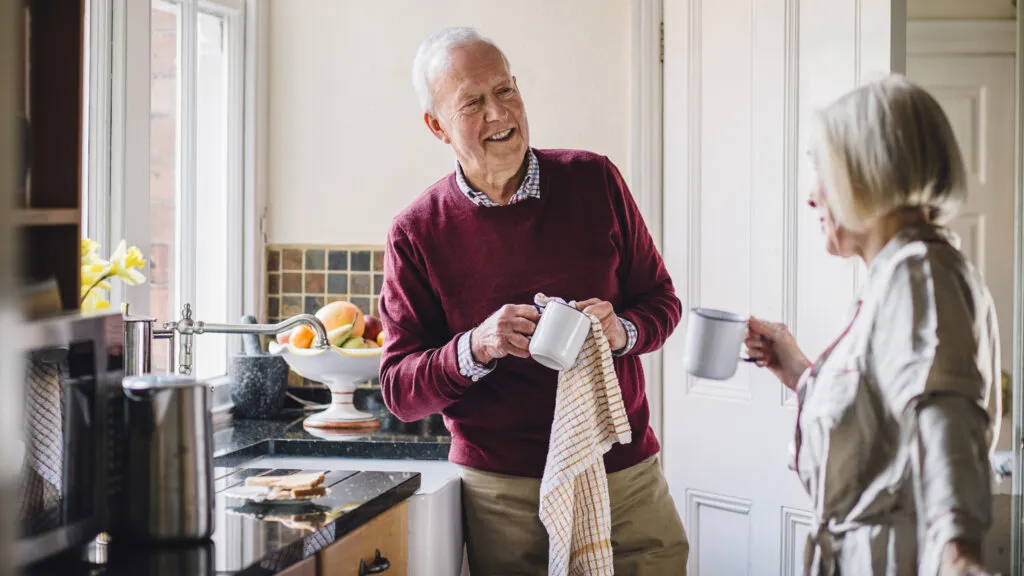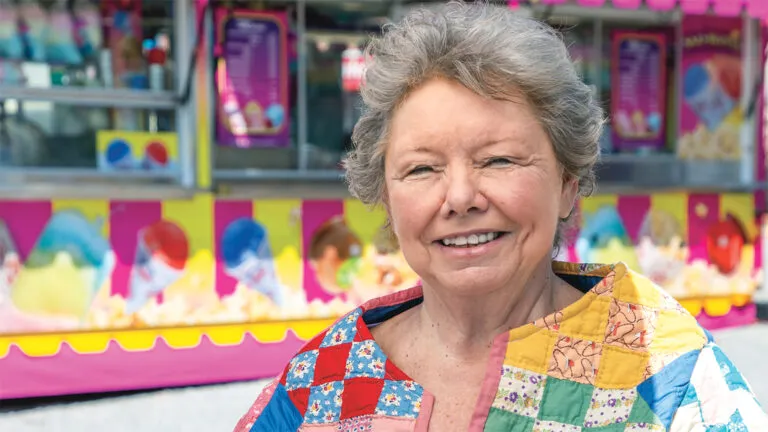Based on information provided by Philips Lifeline
You may be aware that falling is a risk for seniors, but you may not know that there are many simple steps you can take to significantly reduce the chances of a fall.
Falling is especially dangerous for seniors because it can lead to serious health consequences, from bruises to head injuries or broken bones. Recovery from a fall may take longer for senior than a younger person. Ultimately, falls can lead to reduced mobility and aggravate other health problems.
If you or someone you love is a senior, take the time to become aware of risk factors and make a few changes around the house. It’s an investment in a healthy future.
Learn the risk factors
As you age, you become less agile and may move more slowly. Declining vision and hearing, certain medical conditions and some medications can also increase the risk of falling. These risks can add up quickly when there are multiple medications and several diagnoses.
If you’re active senior who thinks you’re not at risk, think again. Sometimes seniors who’ve been active for decades don’t realize that they need to take precautions.
Talk to your doctor
Ask your doctor if the medications you take may cause dizziness or have other side effects that could lead to a fall. Even some common blood pressure medications may cause dizziness, so it’s always a good idea to ask. Don’t feel embarrassed to ask questions or bring up symptoms or side effects you may be experiencing. Being honest with your doctor can help prevent much more serious problems in the future.
Take care of a senior in your life. Sign up for Philips Lifeline.
Diabetes is a risk factor
Did you know that 27 percent of people over 65 have been diagnosed with diabetes? Seniors who are over 65 and have more than four complications from diabetes have up to a 78 percent risk of falling compared to just a 30 percent risk of falling from their non-diabetic peers, according to a 2003 article in the New England Journal of Medicine.
Complications from diabetes, including peripheral neuropathy and retinopathy, are the culprit, as they work together to increase the risk of falling. Talk with your doctor if you have diabetes to discuss ways to manage symptoms and reduce your risk.
Safety begins at home
Most people feel most comfortable at home. If you’ve lived there for years, or decades, you are familiar with everything, even a slope in the floor or an uneven step. But aging changes our bodies. Although you may know your way around your home in the dark, your vision is not as sharp as it once was. You may not move as fast and, if you do trip over a stray dog toy in the hallway at night, you may not be able to regain your balance as quickly. Fortunately, there are simple steps you can take to improve the safety of your home.
Keep the stairs clear
It’s often a habit. Put a book you plan to read tonight on the stairs, so you’ll remember to carry it the next time you walk up. Or put a blanket on the top step to take it downstairs later. Unfortunately, these objects can easily trip up anyone who’s slightly unstable or may have limited vision. Always keep the stairs free of clutter, no matter how short a time you plan to keep the object on the steps. Also, double check the handrails to make sure they are secure enough to support the weight of someone reaching for it. Check the carpet for rips or loose threads that might snag someone’s shoes. Finally, make sure the stairs are well-lit. These simple steps can make a tremendous difference.
Use caution in the kitchen
Kitchen floors are often smooth and slippery for everyone, regardless of age. Simply being aware of that can make a difference. Don’t go dashing into the kitchen on a snack run! And if there’s a spill, consider that reaching down to wipe up the mess might cause a loss of balance. Just pause and think before you take action, and adjust as needed. Even familiar tasks like bending over to put groceries in the refrigerator or cabinets could cause some people to lose their balance. The overstuffed tall kitchen garbage bags that worked well for a family may be too much for a senior to manage. Approaching risky situations with care and making minor adjustments, like a smaller garbage bag, can help keep you safe in the kitchen.
Make some modifications in the bathroom
Some simple changes in the bathroom can also significantly reduce the risk of falls. Remove clutter from the floor. Even a bathmat, unless it is a specially designed non-slip mat that grips the floor, can create a real risk for seniors. Remove the bathmat and other clutter on the floor.
Get a bright, effective light-sensitive night light to keep the bathroom well-lit, no matter what time of day it is. Don’t rely on memory to navigate your home or your bathroom at night.
In the shower, a hose-mounted sprayer and shower seat eliminate the need to remain standing, and keep your balance. If you have a tub that requires you to step over a high edge to get in, consider installing grab bars to assist with maintaining balance or use a seat that allows you to enter the tub by carefully swinging the legs over the tub one at a time, instead of standing up to step in. Securely installed grab bars by the toilet can make the bathroom much safer too.
Be safe outside
Just as you check the staircases inside the house, pay attention to the entrances to home. Of course, ice and snow can make stairs and driveways treacherous, but chipped or crumbling stairs and cracked driveways can be a hazard, regardless of the weather. What may slightly unsightly to a homeowner can be a serious risk for senior. Take the time to repair any dangerous situations.
Elevate your garden
Gardening is a great activity for any age. It can be a wonderful stress reducer, a chance to get outside and even a way to grow some fresh vegetables. There’s no need to give it up as you age. Instead, if the bending and kneeling become challenging, consider a garden bed constructed so that it’s an easy height to access while seated in a chair. Or try window boxes that are more easily accessible.
By taking some basic precautions at home and being aware of risk factors, like medications and health conditions, it’s possible to significantly reduce the risk of falls. Simple changes and an awareness of potential problem areas can make a world of difference.





